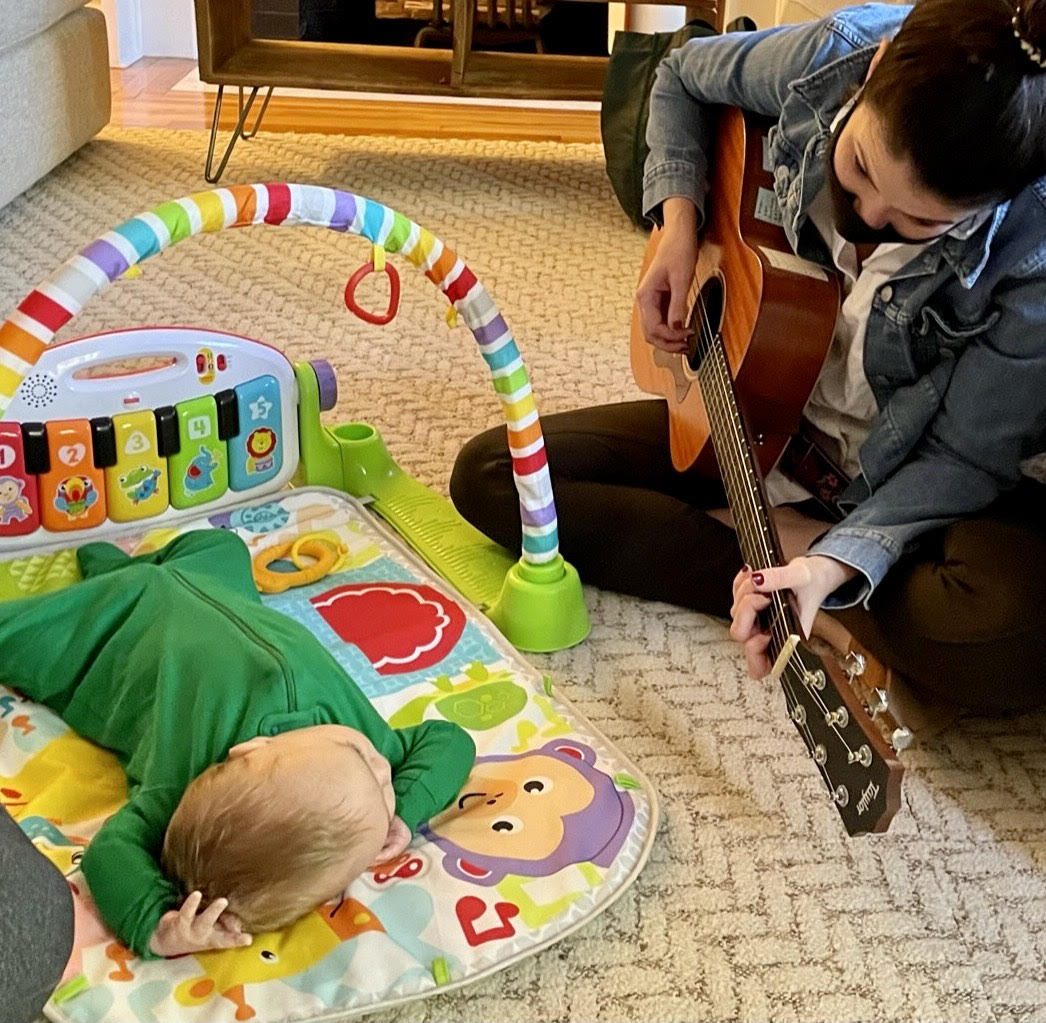
April 25, 2022 by Kristi Faby
I once read an incredible article by a music therapist who had autism. She shared that her autism is a strength when it comes to her musicianship. For instance, practicing a musical phrase repeatedly demonstrates artistic dedication instead of “stimming,” a stereotypical behavior that refers to repeated movements or sounds. As a music therapist myself, I can list a multitude of reasons why music impacts the brain, but when I read this piece, something clicked for me. Instead of viewing the individual as benefitting from music, the music was benefiting from the individual. I can list so many reasons why someone should engage in arts therapies, and this is at the top.
More traditional research shows that music therapy for children with autism can lead to higher self-esteem, greater communication, and emotional regulation. I notice that these outcomes are even more possible when family members actively participate in sessions. Through making music or other forms of art, children engage in developmental domains of physical, cognitive, social/emotional, and linguistic development. Toddlers can be diagnosed with autism as early as 18 months. This is good news for brain development, as a diagnosis allows children to receive needed services early, when neuroplasticity is at its height. In Massachusetts, there are a host of early intervention programs that provide music therapy, either internally or externally. For example, South Shore Conservatory provides therapy through First Early Intervention (EI) in Weymouth.
Unfortunately, when a child turns three years old, EI services end, and music and other creative arts therapies (dance, yoga), are not typically covered through insurance. Even families who live with autism and have an average household income may struggle to pay out-of-pocket fees for education and medical bills. In addition, access to music and other therapies has been restricted due to the ongoing pandemic, forcing organizations, including SSC, to shift to virtual platforms. In-person groups, especially for vulnerable little ones, were put on pause, losing years of social interaction through play and other groups during a crucial time for brain development.
Enter the Doug Flutie Jr. Foundation for Autism. With funding from Flutie, SSC can now offer dozens of hours of music therapy, dance therapy, and yoga for the special child at no cost to families whose children “aged out” of early intervention. Most of our services take place on our Hingham campus, starting with our 7-week Moving and Grooving program, led by SSC music and dance therapists, which begins May 13. We have a few open slots, and siblings are welcome! This group is intended for families who have experienced hardship due to the pandemic. Proof of autism diagnosis is required.
If you have a loved one who fits our criteria for these funds and could use music therapy, dance therapy, or yoga, please reach out to me at k.faby@sscmusic.org. Summer is here, and our therapists’ schedules are opening up. We are eager to share the mutual benefits of coming together to make music with individuals of all abilities! Learn more about SSC’s Creative Arts Therapies department, visit sscmusic.org/cat/.
Kristi Faby is South Shore Conservatory’s Director of Creative Arts Therapies

